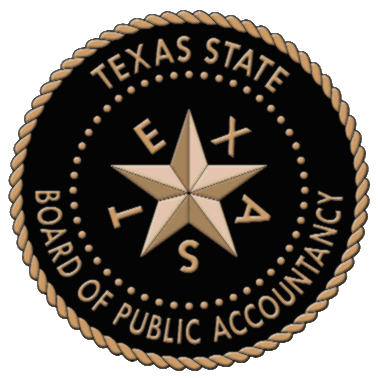State Board Confirms Investigation Into Arthur Andersen LLP/Enron Audit
(austin) -- Attorneys for Arthur Andersen LLP have given the Texas State Board of Public Accountancy permission to disclose that in November 2001 the Board opened an official investigation into Andersen’s audit of Enron.
The Texas Board is prohibited by law from disclosing any specific details of this matter. The Public Accountancy Act, the Board’s enabling statute,expressly states that information gathered or received regarding a disciplinary action against a license holder is confidential and not subject to public disclosure until:
- the Board receives the respondent’s written permission to disclose that an investigation is underway;
- the Board has issued a final order in a disciplinary action resulting from an informal proceeding; or
- the Board has held a formal public hearing in the matter.
The Texas Board is statutorily mandated to protect the public by ensuring that persons issued CPA certificates possess the necessary education, skills, and capabilities and that they perform competently when serving the public.
Each state board of public accountancy issues its own CPA certificate and license, and therefore is the only entity that can carry out disciplinary actions involving the forfeiture of a certificate or license. Individual state boards of accountancy regulate not only CPAs who provide services to SEC registrants, but also those who work with smaller companies.
The Texas Board’s efforts include ensuring that appropriate action is taken and that due process is carried out in all enforcement cases. The staff annually investigates and prosecutes approximately 300 alleged violations of the rules of professional conduct and the statute.
The Texas Board’s disciplinary process begins with a complaint, filed either by a member of the public, another government entity, or on the Board’s own initiative. A staff investigation follows, sometimes with the assistance of an outside technical consultant.
The Texas Board designates certain investigations as "major cases." These involve CPA firms implicated in the audits of failed or troubled savings and loan organizations, financial institutions, insurance companies, and other cases of a major nature. Such cases are more complex and require substantial resources for pre-hearing preparations and prosecution. The Texas Board engages the Texas Attorney General’s office to assist in the prosecutorial process.
"I am proud of the Board’s long record of vigorously investigating all complaints against CPAs," said K. Michael Conaway, CPA from Midland and the Texas Board’s presiding officer. "The Board administers a wide range of sanctions against individual CPAs and/or CPA firms that are found to have violated the Public Accountancy Act or Board rules. The publishing of sanctions against CPAs and/or CPA firms is an integral part of protecting the public."
For additional information on the Texas Board and its enforcement process, see www.tsbpa.state.tx.us. On the home page, scroll down to QUICK LINKS and then click on TEXAS STATE BOARD REPORTS. This newsletter is distributed to all Texas CPAs and contains summaries of the Board’s recent sanctions.
# # #
Contact: William Treacy
Executive Director
(512) 305-7801
